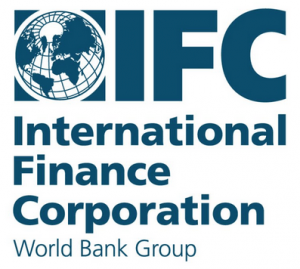IFC commits $6.3b investment to drive infrastructure, job creation and growth in Africa
 The International Finance Corporation (IFC) of the World Bank Group, has committed $6.2 billion in long-term financing in private investment in sub-Saharan Africa in 2018 to help drive infrastructural development, job creation and growth in the region.
The International Finance Corporation (IFC) of the World Bank Group, has committed $6.2 billion in long-term financing in private investment in sub-Saharan Africa in 2018 to help drive infrastructural development, job creation and growth in the region.
This is the first time the region is receiving IFC’s largest investment in a financial year. The previous fiscal year, the IFC committed a total of $3.5 billion in the region.
“This year, the IFC’s annual investments and mobilizations in the region accounted for more than a quarter of IFC’s $23 billion in global long-term financing. It was the first financial year the sub-Saharan Africa region accounted for IFC’s largest regional investment programme,” the IFC said in a statement copied to ghanabusinessnews.com.
Generally, the IFC’s commitment in sub-Saharan Africa included; $1.5 billion in own account investments and $4.7 billion in mobilization in 2018. Segregating the total investment volume by industry, $3.5 billion went into infrastructure, $1.2 billion into manufacturing, agriculture and services industry, the financial market in Africa received a total of $1.5 billion and telecoms, media and technologies also received $100 million in the year 2018.
All of these account for about 25 per cent of the IFC’s global new commitments.
“IFC’s commitments in sub-Saharan Africa included $1.5 billion in long-term financing for IFC’s own account. IFC mobilized another $4.7 billion from other investors in core mobilizations, supporting projects in infrastructure and natural resources ($3.5 billion); manufacturing, agribusiness and services ($1.2 billion); financial institutions ($1.1 billion); and telecoms, media and technologies ($100 million).
IFC advisory services included support to projects to improve financial inclusion and access to finance, and to help encourage the manufacturing, agribusiness and services sectors,” the statement read.
“Africa is at the core of IFC’s global strategy to ensure the private sector has a greater impact and we are deploying financial and advisory tools to create new markets. Our results in sub-Saharan Africa are an early sign of the impact of our new approach,” says Oumar Seydi, the IFC’s Director for sub-Saharan Africa.
With Africa in mind, IFC says it is implementing a new strategy to support investors willing to take more risks with the right incentives. It adds that, the cornerstone of this new strategy — called IFC 3.0 — is to systematically create new markets by tackling market and regulatory imperfections and by collaborating upstream on the policy side. For the necessary capital to be mobilized, IFC aims to reduce risks — both real and perceived., it notes.
According to the IFC, its 3.0 strategy is aligned with the World Bank’s Maximizing Finance for Development approach, and it is expanding the tools available to collaborate more with the World Bank and MIGA.
By Bismark Elorm Addo
Copyright ©2018 by Creative Imaginations Publicity
All rights reserved. This report or any portion thereof may not be reproduced or used in any manner whatsoever without the express written permission of the publisher except for the use of brief quotations in reviews.

Good and credible source of important economic information . Please keep it up.